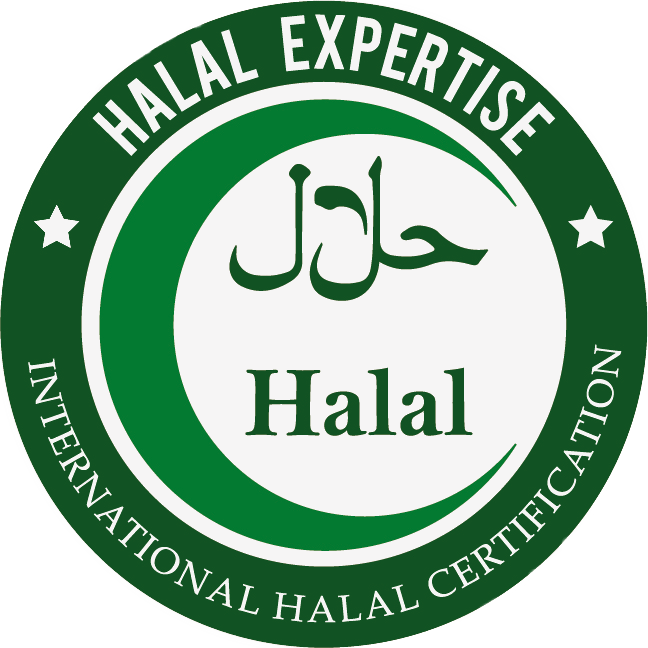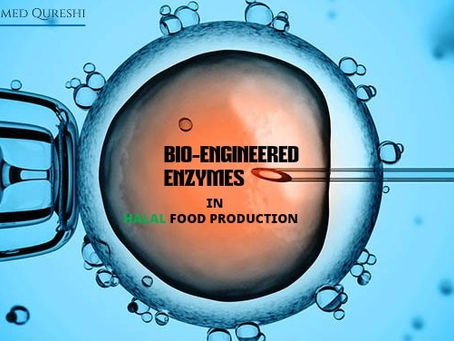According to Quranic verses, blood that pours forth from an animal when it is slaughtered is prohibited for consumption. It includes blood of permitted and non-permitted animals alike. Liquid blood is generally not offered for sale or consumed even by non-Muslims, but products made with and from blood, such as blood plasma proteins, are available. There is general agreement among Muslim scholars that anything made from blood of any animal, including fish, is unacceptable. Products such as blood sausage and ingredients such as blood albumin are either haram or questionable at best, and should be avoided in product formulations.
Consumption of alcoholic drinks and other intoxicants is prohibited according to the Quran as follows:
O ye who believe! Strong drink and games of chance and idols and divining arrows are only an infamy of Satan’s handiwork. Leave it aside in order that ye may succeed.
Chapter V, Verse 90
Satan seeketh only to cast among you enmity and hatred by means of strong drink and games of chance, and to turn you from the remembrance of Allah and from (His) worship. Will ye then have done?
Chapter V, Verse 91
The Arabic term used for alcohol in the Quran is khamr, which means that which has been fermented, and implies not only to alcoholic beverages such as wine, beer, whiskey, or brandy but also to all things that intoxicate or affect one’s thought process. Although there is no allowance for added alcohol in any beverages such as soft drinks, the small amount of alcohol contributed from food ingredients might be considered an impurity and hence ignored. Synthetic or grain alcohol can be used in food processing for extraction, precipitation, dissolving, and other reasons as long as the amount of alcohol remaining in the final product is very low, generally below 0.1%. However, each importing country has its own guidelines that must be understood by exporters and strictly adhered to.
There are no restrictions about cooking in Islam, as long as the kitchen is free from haram foods and ingredients. There is no need to keep two sets of utensils, one for meat and the other for dairy, as in kosher.
In food companies, haram materials should be kept segregated from halal materials. The equipment used for non-halal products has to be thoroughly cleansed by using proper techniques of acids, bases, detergents, and hot water. As a general rule, kosher clean-up procedures are adequate for halal too. If the equipment is used for haram products, it must be properly cleaned, sometimes by using an abrasive material, and then be blessed by a Muslim inspector by rinsing it with hot water seven times.
A general rule of the Islamic Shairah is that it is haram for the Muslim to eat or drink anything which may cause his death, either quickly or gradually, such as poisons, or substances which are injurious to health or harmful to his body. It is also haram to eat or drink large quantities of a substance if large quantities of it cause illness. For the Muslim is not entirely his own master; he is also an asset to his religion and his Ummah, and his life, health, wealth, and all that Allah has bestowed upon him are a trust with him which he is not permitted to diminish. Says Allah (S.W.T.)
And do not kill yourselves; indeed, Allah is Ever-Merciful to you.
An-Nisa; Verse 29
It is rule of the Islamic Shariah that any prohibited thing which is desired by people, such as wine and illicit sexual relations, is to be punished by imposing hadd, while the violation of a prohibited thing which is not desired, such as (eating) the flesh of a dead animal, calls for ta’zir. Now hasish is something which is desired, and it is hard for the addict to renounce it. Accordingly, the application of the texts of the Quran and Sunnah to hashish is similar to that of wine.




